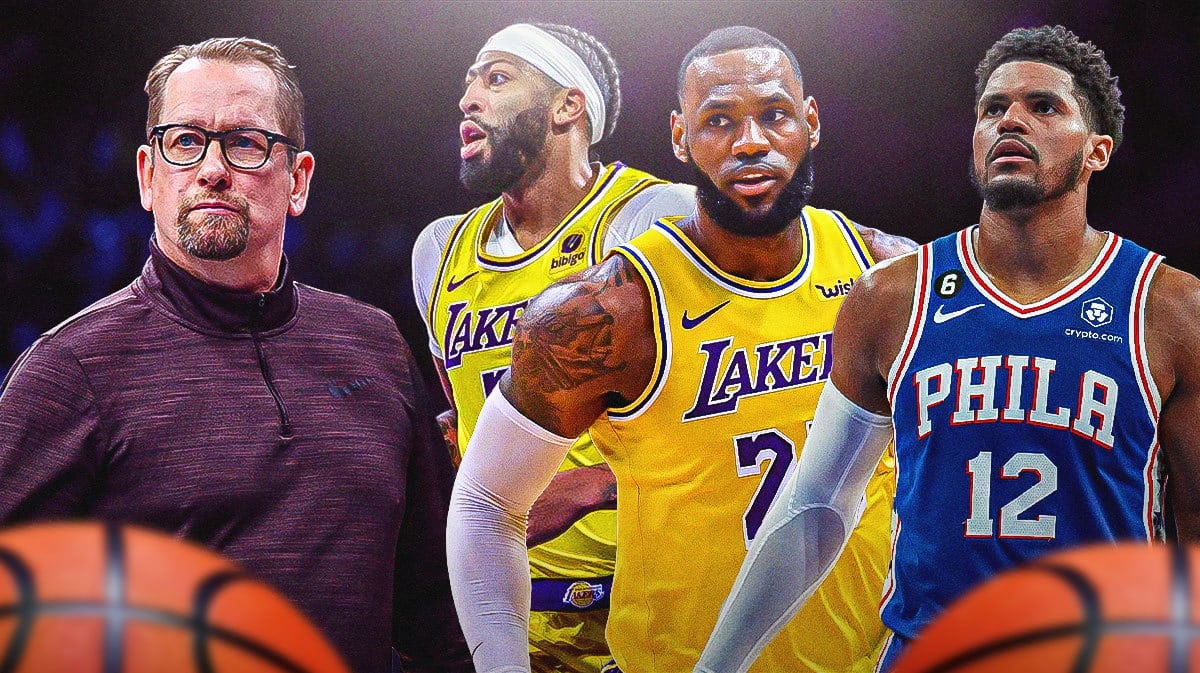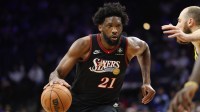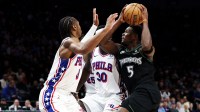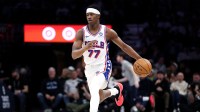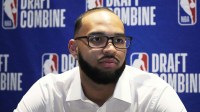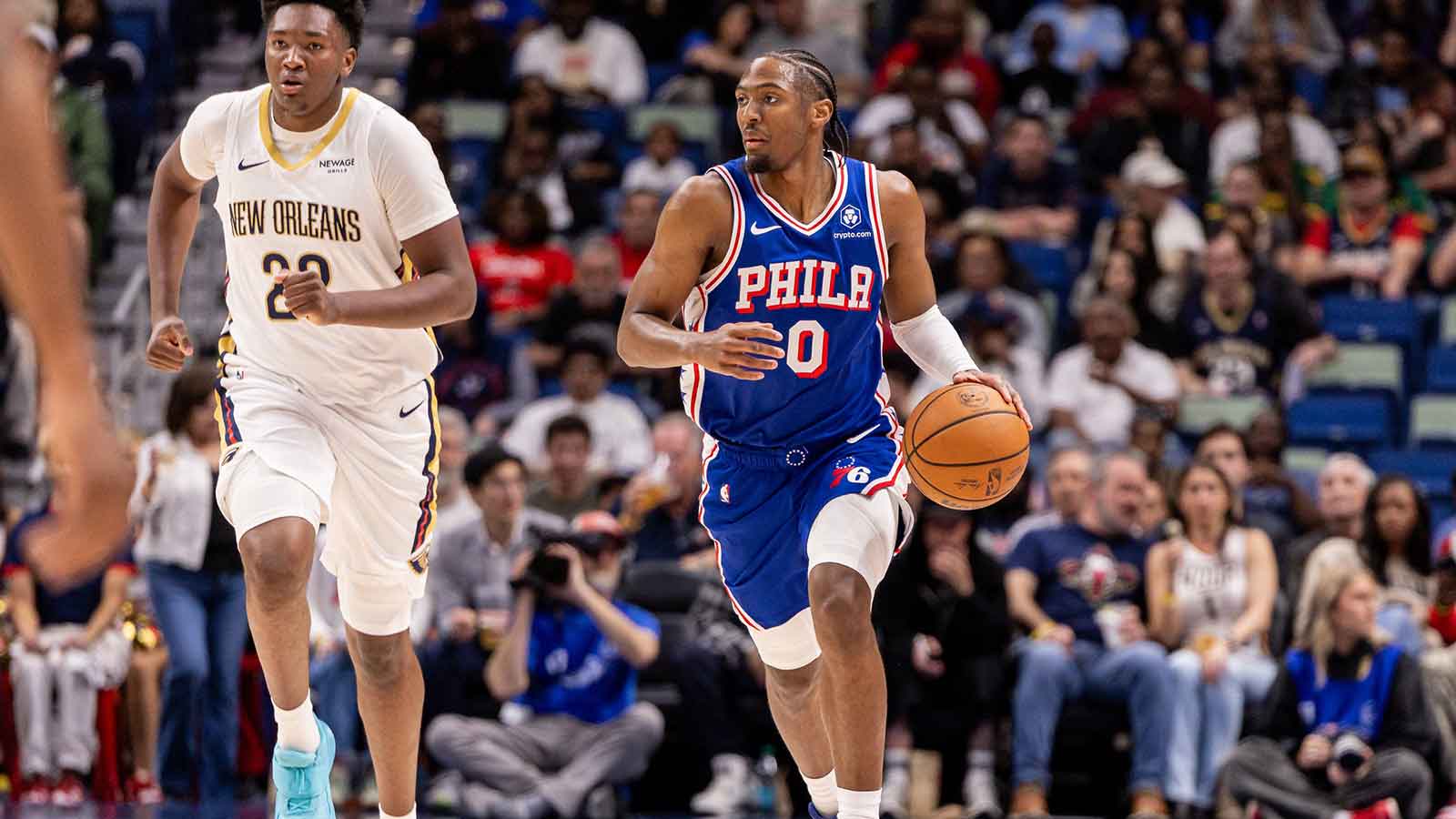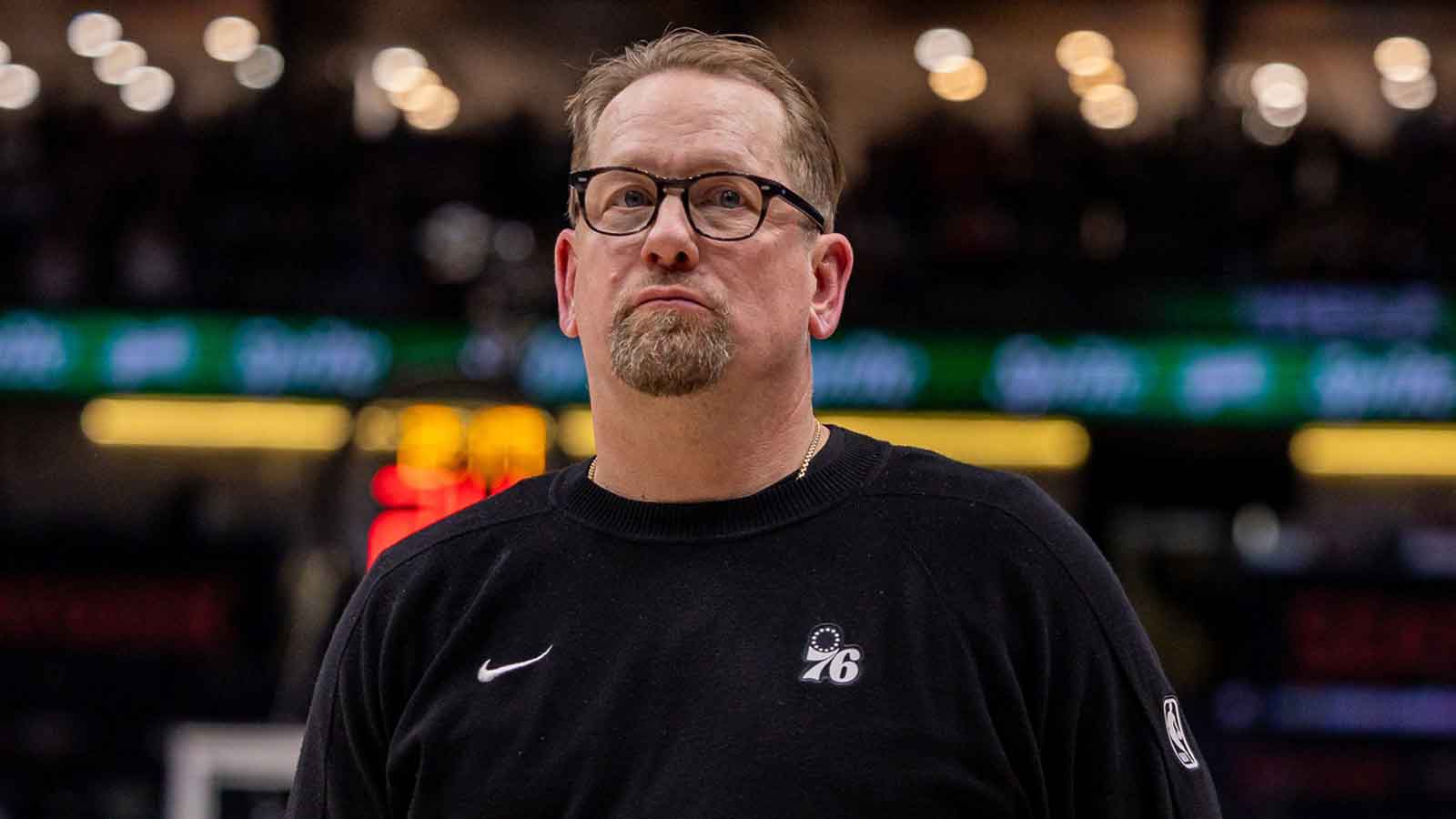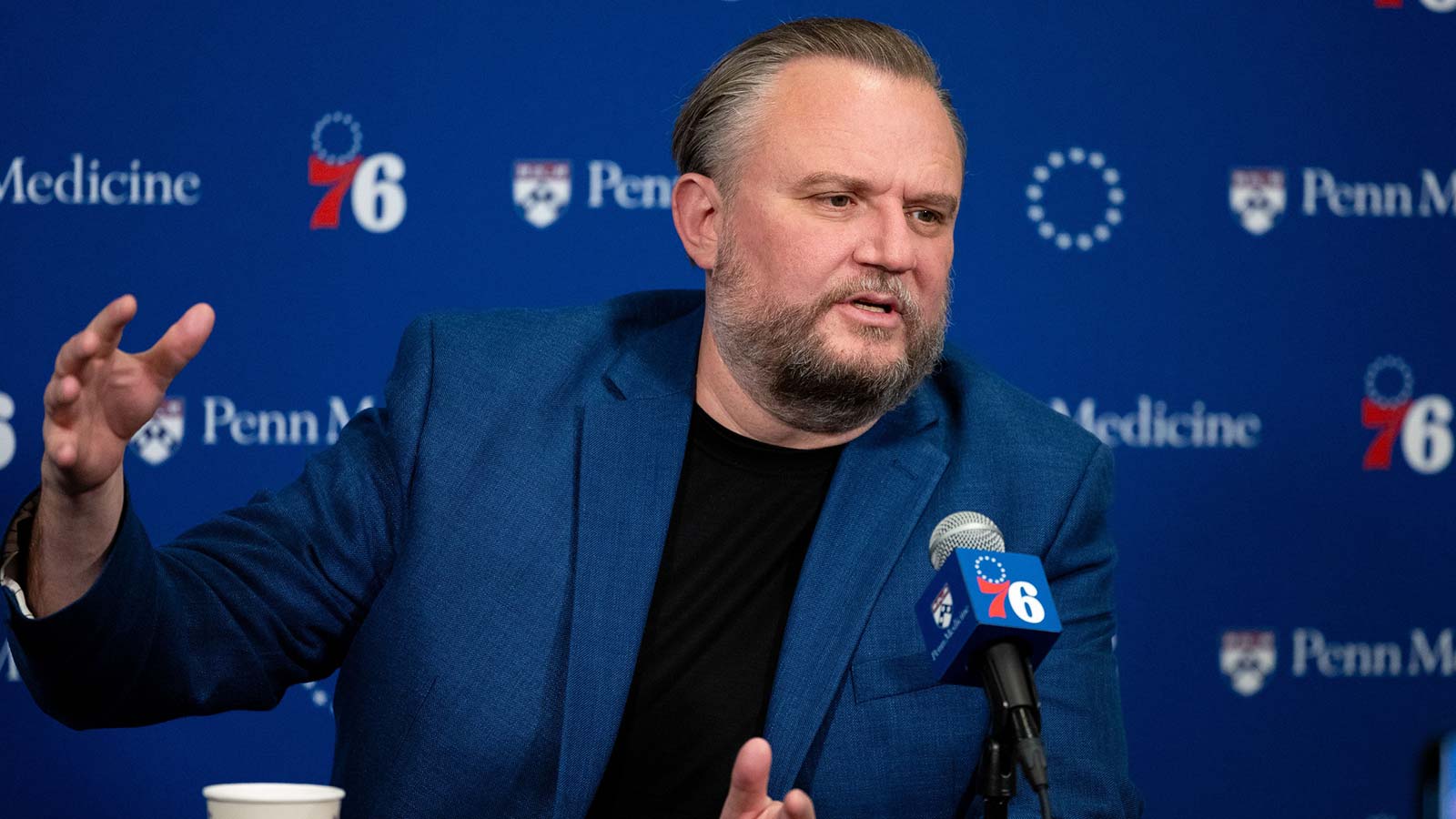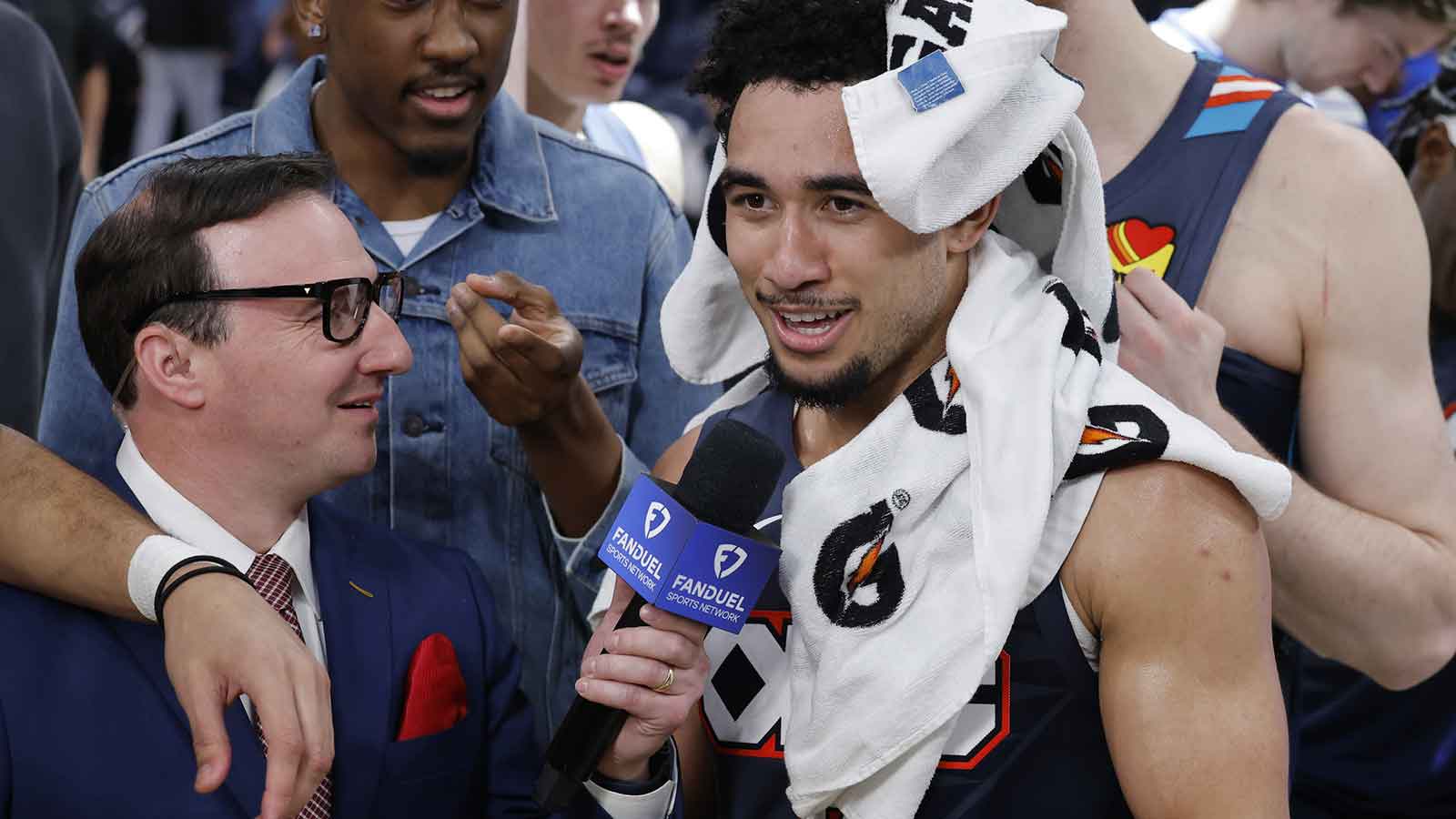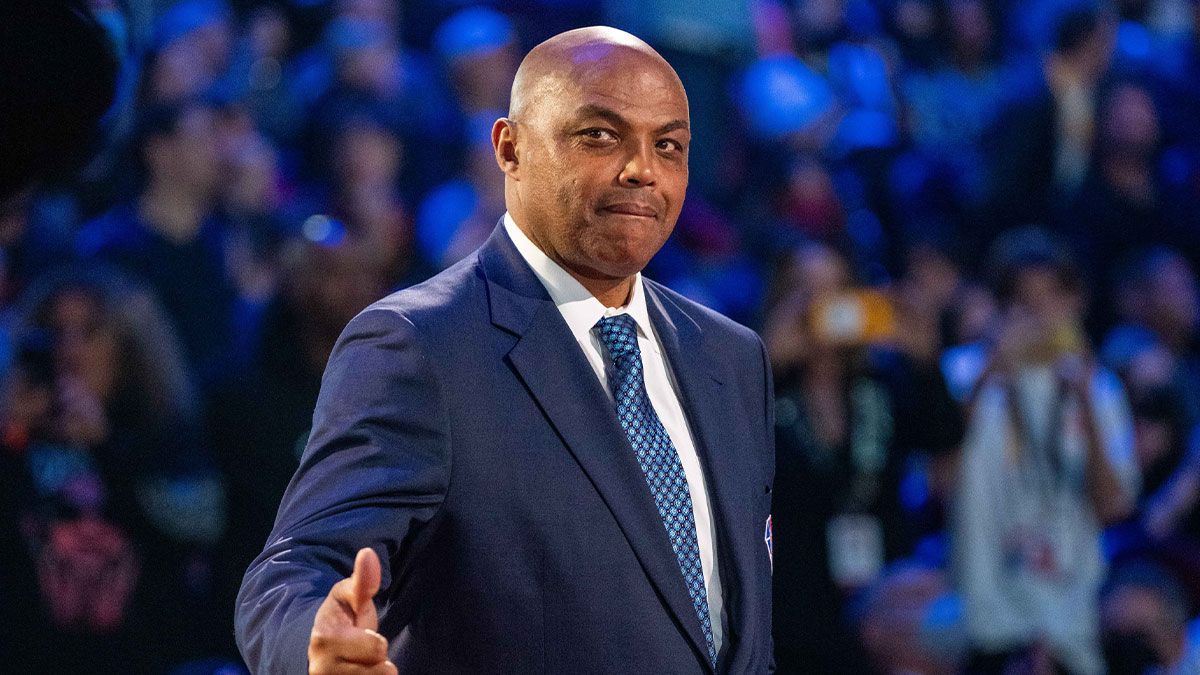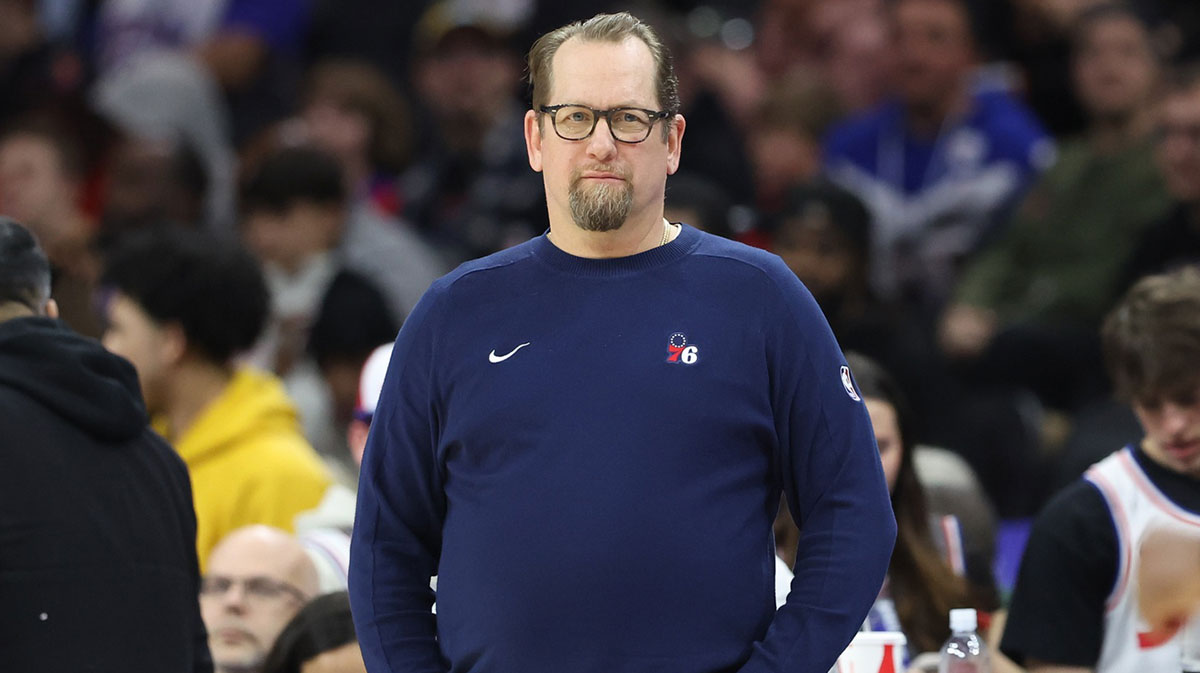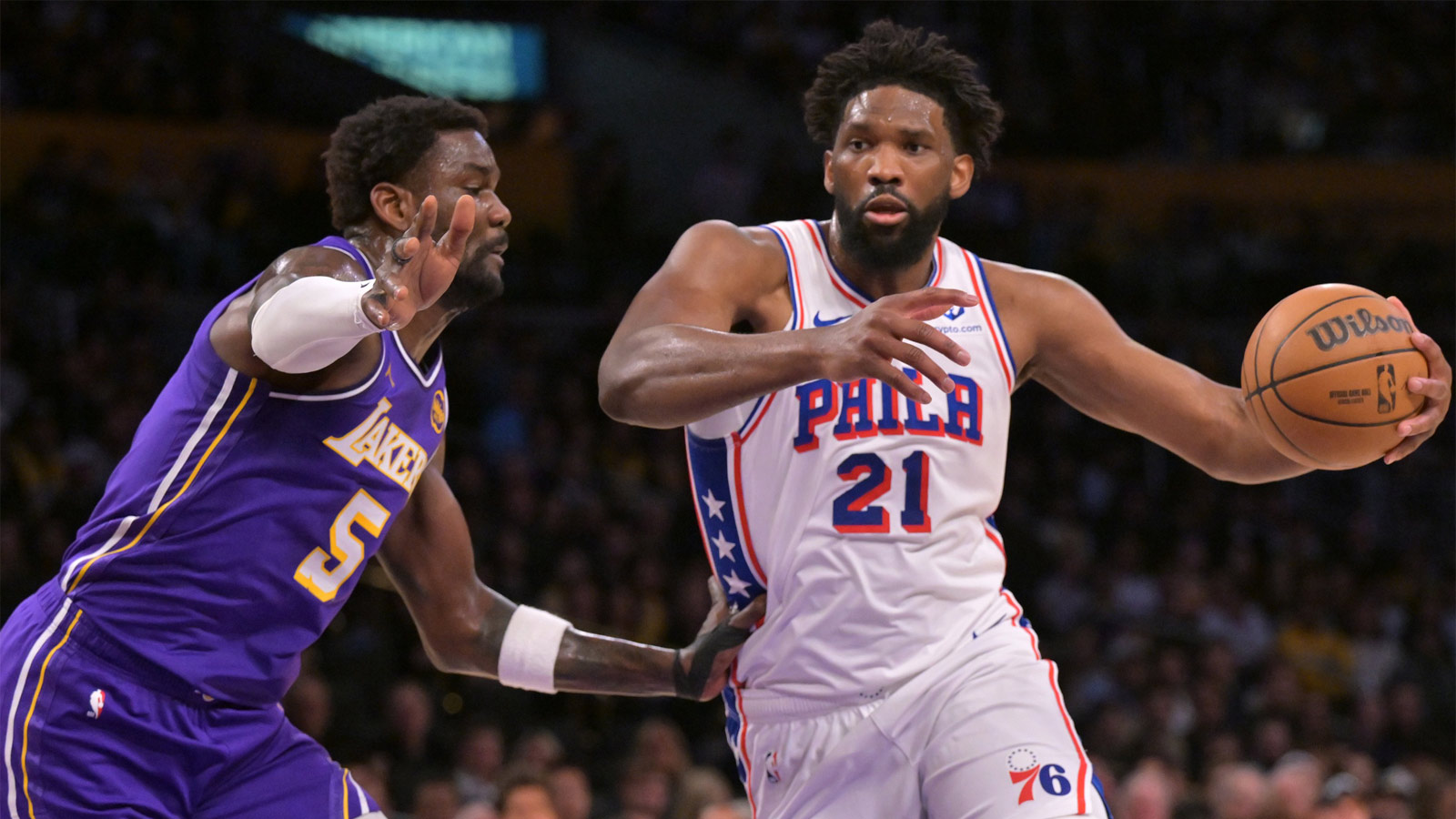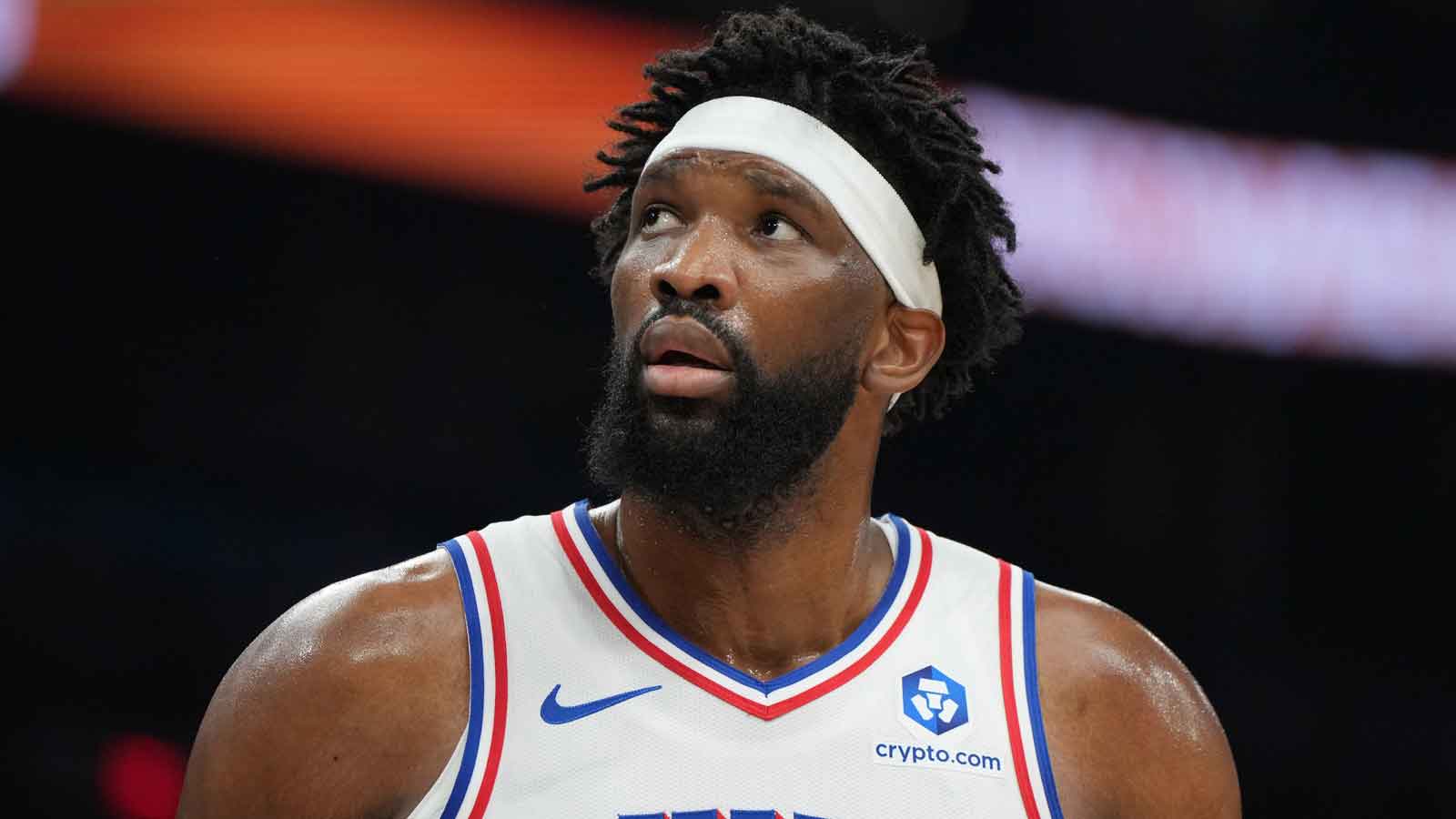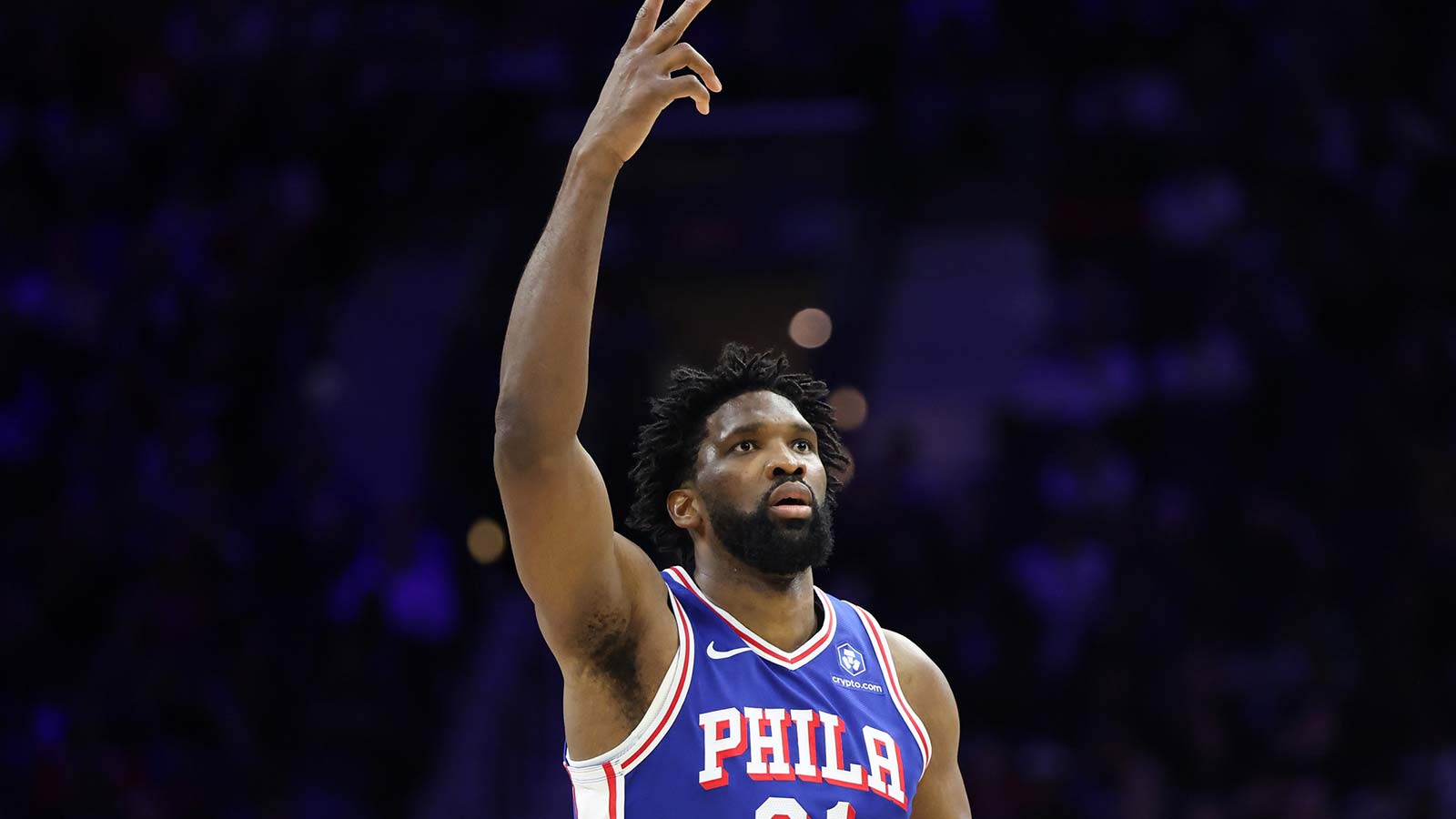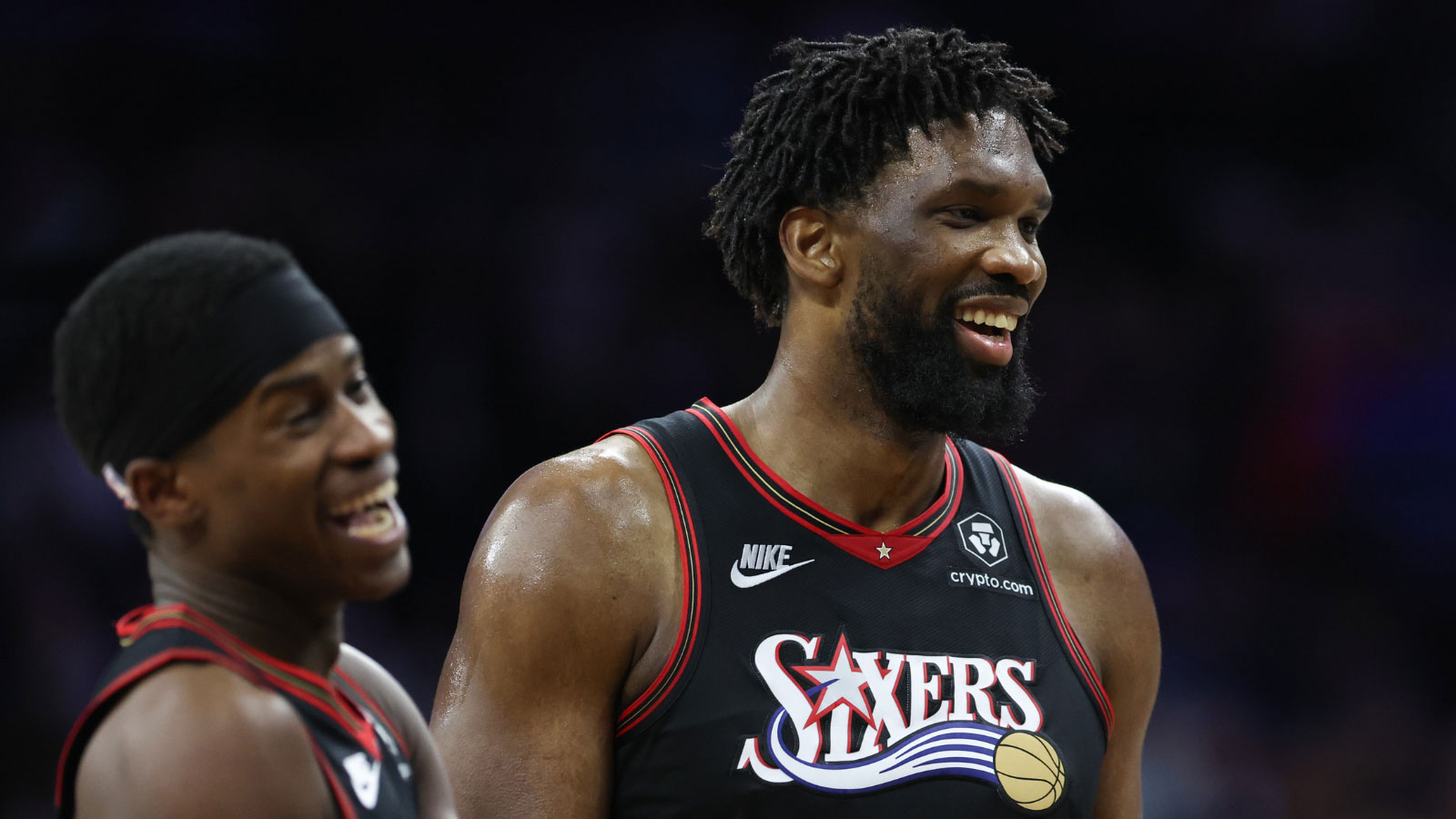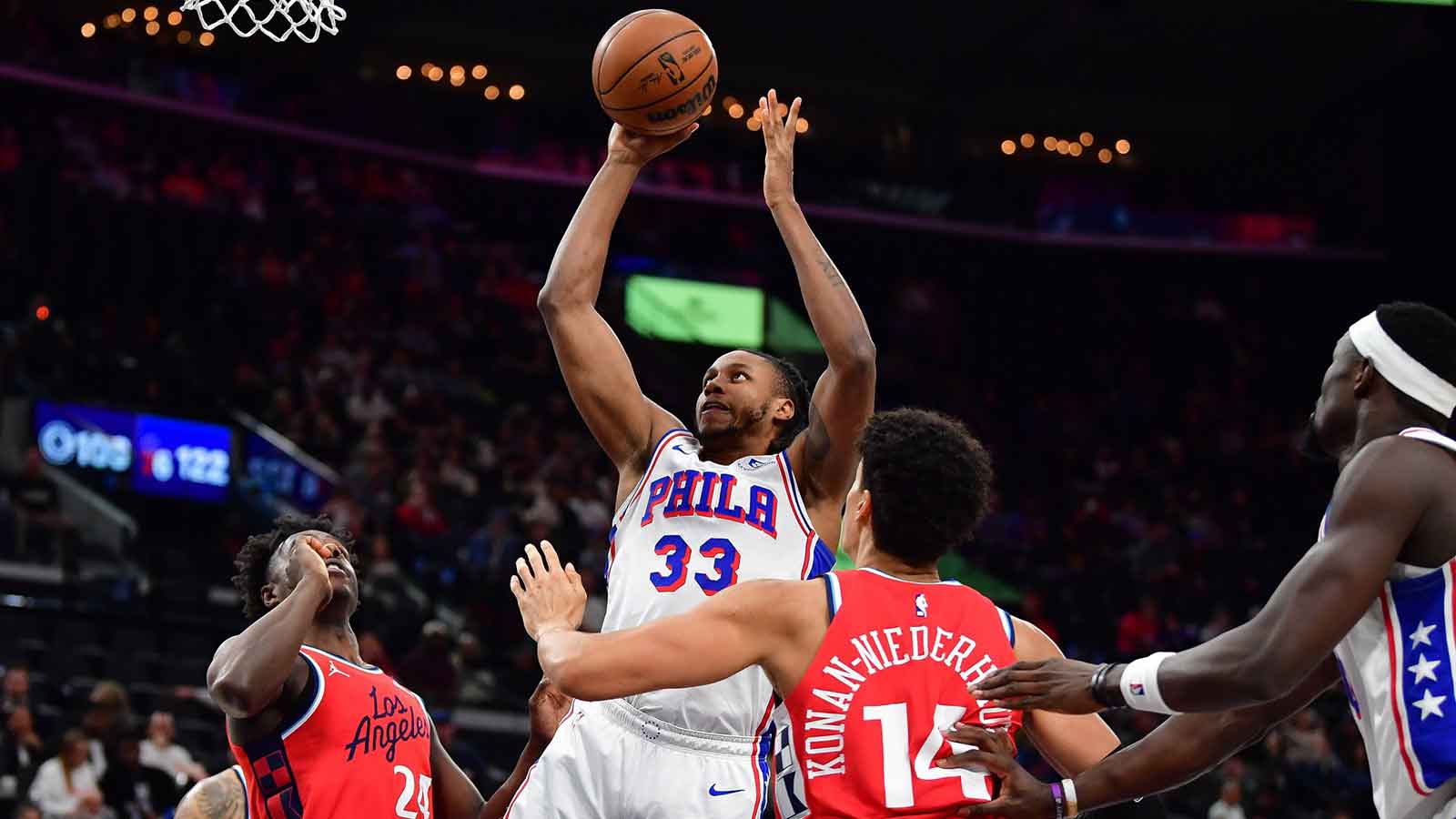The Philadelphia 76ers were so close to securing a pivotal road win over the Los Angeles Lakers. They fell apart in the fourth quarter after leading throughout the third quarter, losing what was a very winnable game by a score of 1o1-94.
Tyrese Maxey scored 27 points but it took him 26 shots to get there. Tobias Harris had 16 points and 13 rebounds and Kelly Oubre Jr. contributed 19 points. Antony Davis stuffed the stat sheet for the Lakers with 23 points, 19 rebounds, four assists and four blocks while LeBron James recorded 20 points, eight rebounds and six assists.
The Sixers' offense once again crumbled as Maxey took a while to truly get going, a clear sign of how dependent they are on him. But they showed some fight on defense that could help them survive this Joel Embiid-less stretch better. Let’s jump into the film.
The Good, the Bad and the Ugly of Harris' return
Harris was put back into the starting lineup after missing the last three games with an ankle sprain. In almost 41 minutes of playing time, he notched a season-high in rebounds and shot 6-18 from the field. Philly lost his minutes by nine points.
There were times when Harris' better tendencies showed and his shots were falling. But there was also a lot of bad defense, hard shots that didn’t fall and an overall sense that this was another rough game in what could be one of the worst contract years an NBA player has ever had.
The Good
Harris set up one of the best plays of the game, Oubre's double-clutch dunk at the end of the first half, with a splendid assist. He doesn’t telegraph it and charges ahead to keep Oubre's defender engaged, clearing the runway for takeoff. Maybe he could have waited a beat for Oubre to get further along on his cut so that the defense didn’t have as good of a shot to contest it. But for what happened, Harris made a fine play on one of his four assists from the game.
In the second quarter, following a rough start to the game, Harris shot 3-4 from the field. He did a great job making use of the Sixers' transition opportunities, charging ahead before the Lakers' defense was set to drill a triple and score on a layup. This is when Harris is at his best: keeping it simple and daring defenders to step in the way of a sturdy, 6-foot-8 forward as he finds a runway to the bucket.
The best individual play of Harris' night was his block on Davis, where he hustled back to prevent an easy layup. He also did a very nice job getting rebounds, coming away with 11 defensive boards and a pair of offensive boards.
The Bad
Harris has always preferred to play with a slower tempo on offense that allows him to carve out his spot to rise and shoot. Although he does have the capability of getting into the paint with his big frame and north-south drives, he far too often likes to take contested jumpers. When he got switched onto by Davis late in the game, he opted for a step-back mid-range that Davis easily contested.
Harris going 1-6 on three-pointers was bad but acceptable; the efficiency wasn’t there but the volume was good. He did have a pair of brutal turnovers in the second half, one of which was a pass just out of Kyle Lowry's reach with three and a half minutes left.
On his shot attempts at the rim, Harris shot 2-3. James forced a miss on one such shot early in the fourth quarter but Harris managed to get one back later on. The rest of Harris' five shots from the paint connected just once. A poor shooting night for Harris is not all that surprising given the degree of difficulty in his shots.
The Ugly
There were some atrocious defensive moments from Harris in this one. For starters, if you're matched up with LeBron James — he of the 40,000+ points and who is arguably the greatest basketball player in history – you should perhaps not turn away from him entirely, giving him an open dunk.
This is one of the grossest moments of ball-watching all season long for any player. It also wasn’t the only time James dusted Harris on a backdoor cut.
Harris' inability to slide laterally allowed the Lakers star to scoot right by him, making him look stuck in quicksand repeatedly. Whether James got a screen or not, he found it very easy to blow by his primary defender. Sure, it's not an easy assignment to guard James. But Harris has to provide more resistance than he did in the loss.
And that aforementioned cold spell to start the game…woof. Harris went 2-8 from the field in the first quarter. He couldn’t even find a way to score on Spencer Dinwiddie, a player smaller in weight and height. The previous miss against Davis showed how he struggles to beat a slower, bigger player with speed or finesse. Against Dinwiddie, he showed how he struggles to punish smaller defenders with his bigger, stronger frame.
While it is true that the Sixers' spacing has no business being this bad with so little time on the shot clock, this is a garbage shot attempt. The second half wasn’t any better for Harris, as he shot 1-6.
It's hard to chalk these struggles up to Harris being a little rusty because these are things he already was struggling a lot with before he got injured. Shots won’t always fall, and that’s okay, but Harris sacrificing the 76ers' flow on offense to get his own isolation looks, coming up empty on those shots and then not making up for it in other areas is holding the team back.
Something has to change before now and the playoffs that gets Harris playing at least decently.
Turn 'em over
The Sixers forced over 20 turnovers in each of their last two games, something they haven’t done all season. They tallied at least 12 steals in both games, which they also haven’t done this season in consecutive games. As Maxey said recently, they have to develop an identity to fall back on with Embiid still out. Being a team that forces a ton of turnovers suits them well.
Not only is Embiid's interior defense incredible but the Sixers' interior defense without him is abysmal. Mo Bamba has the size but not the conviction to be a consistently impactful rim protector. For Paul Reed, the inverse is true. Coupled with an already suspect perimeter defense, the 76ers are unsurprisingly not great at preventing teams from scoring.
The solution? Force turnovers. If the Sixers aren’t able to stop teams from hitting their shots — on top of their frequent struggles on the glass, which was the case in LA — they might as well try to stop teams from getting up those shots in the first place.
While the 76ers did benefit from some uncharacteristically sloppy passing and decision-making from The King, they did a great job of keeping their hands and feet moving. When the Lakers showed them the ball, they shot their arms up to disrupt their dribbling, like Paul Reed does here…
…or their passing, which Oubre did here for one of his three steals, which tied with Maxey for the game-high.
As far as rotations on defense go, the Sixers did a solid job of sliding over to keep an LA play in check and then recovering out to their man. On this play, Cam Payne is able to slip into the passing lane because KJ Martin slides down to take away the lob to Jaxson Hayes. Once Martin moves over, Payne slides back out to Max Christie, who James thinks is open. Buddy Hield does a great job filling the lane and converting on the transition triple.
The 76ers making these extra efforts can end up going a long way in the games where they have less star power (which is often with Embiid out). It can also work to gunk up the offense when the stars aren’t the ones making the play. This trap on D'Angelo Russell leads to a steal from Oubre after Davis can’t get a clean grasp on his deflected pass. It might behoove Philly to load up on less-heralded players here and there, as it could lead to a greater chance of forcing a mistake.
Oubre's off-ball defense has popped as of late. This was his third straight game with at least four stocks. His long arms make for great tools of disruption, as he showed when he poked the ball away from James. His sense of timing pairs very nicely with his quick jumping abilities, too. Davis may have gotten around him and right to the hoop but he's met at the apex with an emphatic rejection.
The 76ers having to find a new way to play this close to the playoffs only to scrap it (or at least significantly alter it) when Embiid comes back is a hard spot to be in. But they don’t have a choice. Being a scrappy, turnover-forcing team can help generate stops on defense and fuel their creation-starved offense.

